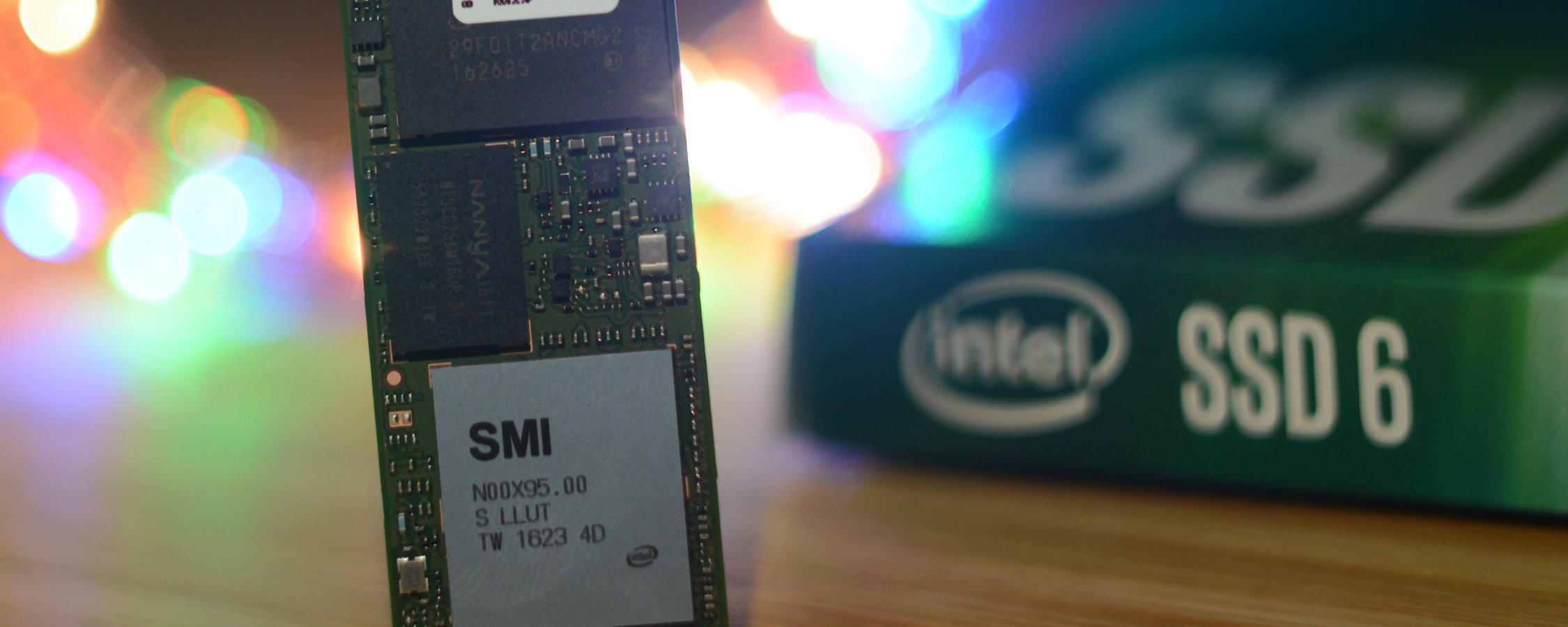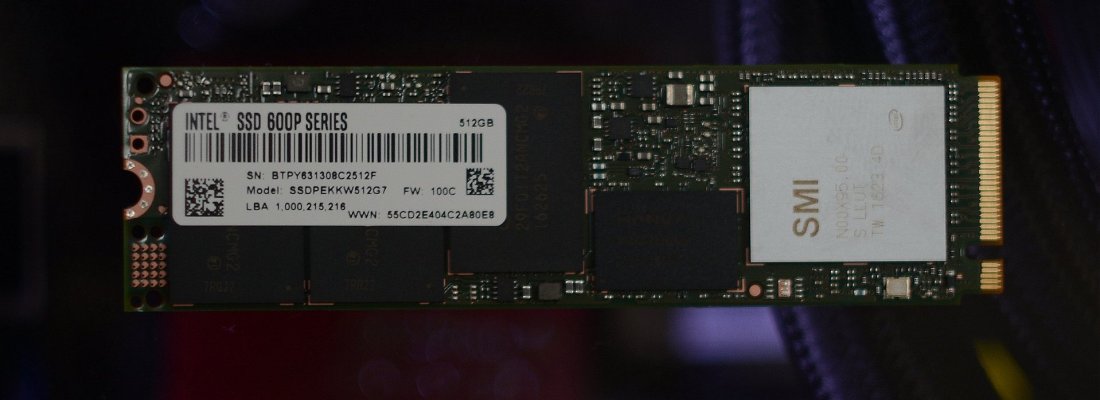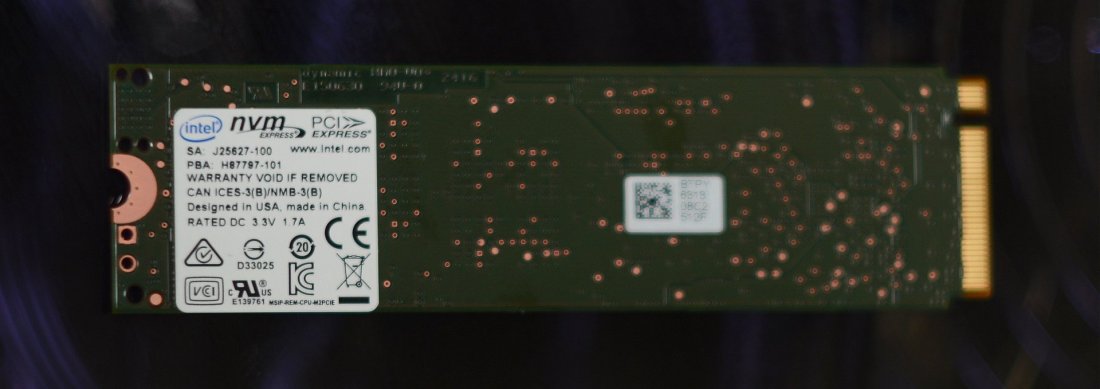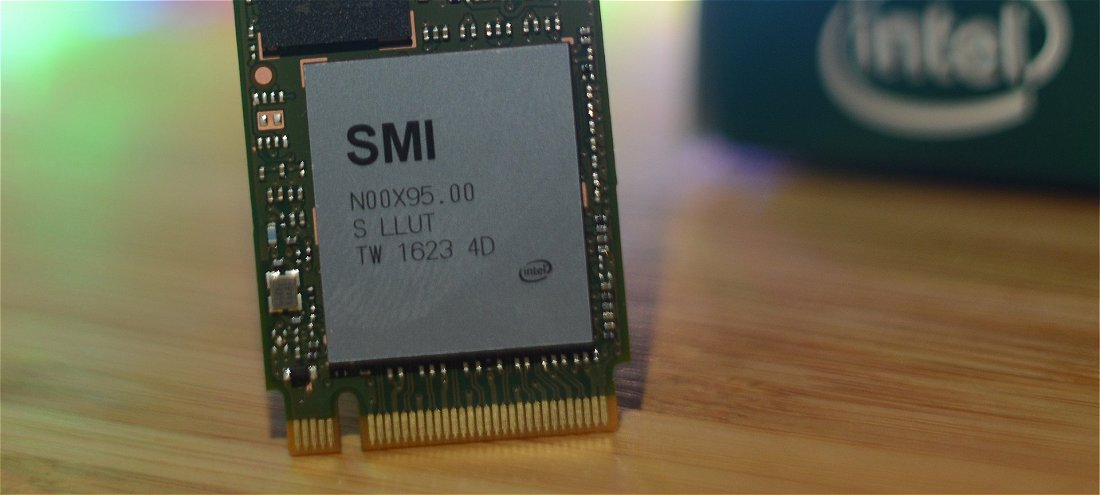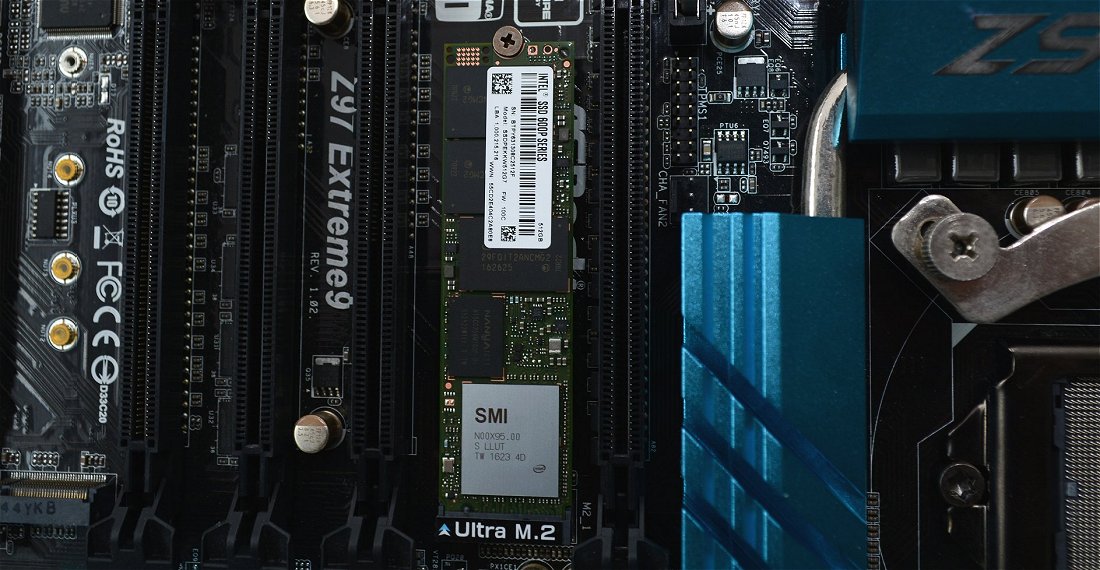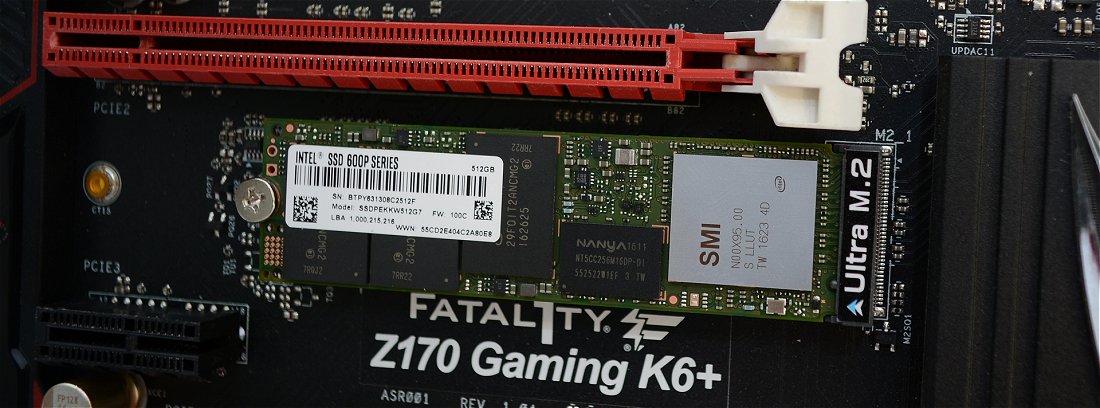Announcing half a dozen new 3D NAND-based SSDs in August, Intel's SSD 600p Series in particular caught our attention for being an aggressively priced M.2 NVMe-based model targeting consumer desktops and notebooks.
Using 3D TLC flash memory developed in conjunction with Micron, Intel has been able to keep pricing in check and offers the 600p in capacities starting at 128GB for $67 with sequential reads and writes of up to 770MB/s and 450MB/s (1.8GB/s and 560 MB/s on the 1TB model).
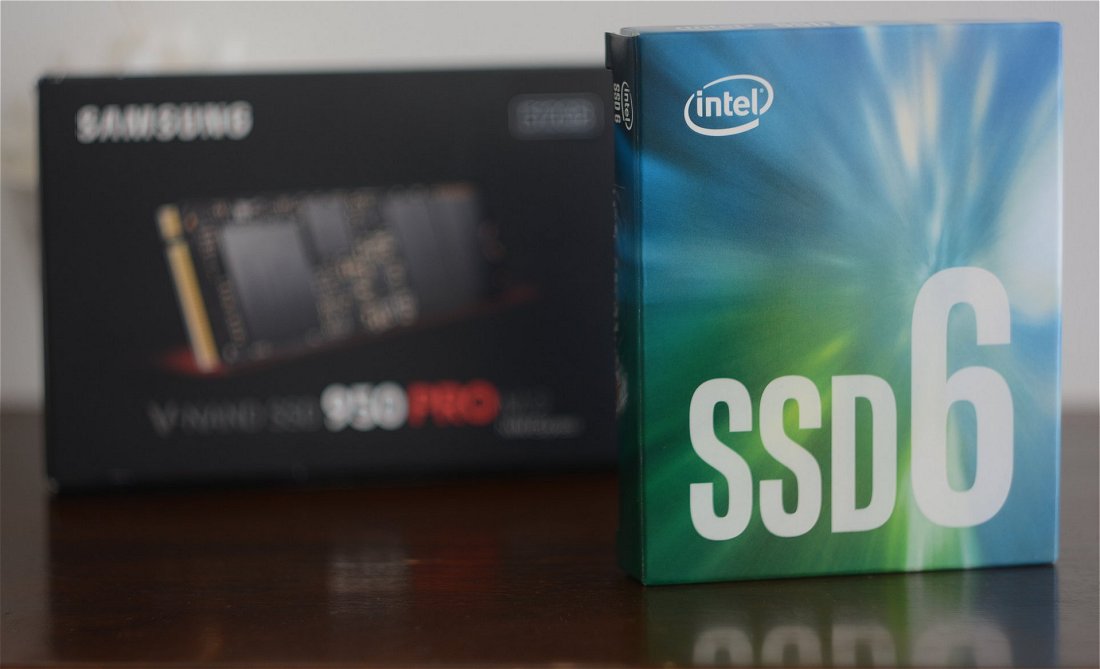
While that's slower than what we have come to expect from M.2 NVMe drives, keep in mind that this series is meant to be affordable.
In comparison, the Samsung SSD 950 Pro is rated for at least 2.2GB/s write speeds coupled with 900MB/s write for the 256GB model and 1.5GB/s for the 512GB version. However, what's important to note here that the 950 Pro 256GB costs $187.
| 120 - 128GB | 240 - 256GB | 480 - 512GB | 960/1TB | |
|---|---|---|---|---|
| Intel SSD 600p |
$67 ($0.52/GB) |
$109 ($0.42/GB) |
$189 ($0.36/GB) |
N/A |
| Intel SSD 750 Series | N/A | N/A |
$300 (400GB) ($0.75/GB) |
$610 (800GB) ($0.76/GB) |
| Samsung 950 Pro | N/A |
$186 ($0.72/GB) |
$315 ($0.61/GB) |
N/A |
| Samsung 850 Pro | N/A |
$123 ($0.48/GB) |
$250 ($0.48/GB) |
$460 ($0.44/GB) |
| Samsung SSD 850 Evo | N/A |
$100 ($0.40/GB) |
$163 ($0.32/GB) |
$306 ($0.29/GB) |
| Kingston UV400 |
$41 ($0.34/GB) |
$64 ($0.26/GB) |
$117 ($0.24/GB) |
$273 ($0.28/GB) |
| Crucial MX300 | N/A |
$70 (275GB) ($0.25/GB) |
$120 (525GB) ($0.22/GB) |
$250 (1TB) ($0.24/GB) |
Roughly the same amount of money buys a 512GB version of Intel's 600p. At just $0.36 per gigabyte, the 600p 512GB looks to be exceptional value, particularly when you consider that the cheapest TLC SATA 2.5" drives cost $0.24 per gigabyte and should be a good bit slower. Not only that, but compared to premium SATA MLC drives such as the Samsung SSD 850 Pro, the Intel 600p is still quite a bit cheaper.
Meet Intel's 600p 512GB
As just mentioned, there are four capacities to choose from, though we recommend avoiding the 128GB model as the cost per gigabyte on that one is rather high. The 256GB and 512GB models are well priced and we are still waiting for the 1TB model to arrive, though we expect it to be competitive also.
The 512GB model is rated for a sequential read and write speed of 1775MB/s and 560MB/s, respectively, while its random read IOPS come in at 155,000 with the write IOPS reaching 128,000. So again, not in the same class as the much more expensive NVMe drives such as Samsung's 950 Pro, Toshiba's OCZ RD400 or even Intel's own SSD 750 Series.
Intel has managed to even squeeze the 1TB model into the (2280) 80mm form factor so compatibility in compact systems won't be an issue. All chips have been placed on the front side of the PCB for the 512GB model we have on-hand and we're waiting to see how the 1TB model will be configured.
Speaking of chips onboard, we find just three IMFT 3D TLC NAND flash memory chips which as we mentioned are considerably more affordable than equivalent MLC chips. Having an odd number of memory chips seems quite strange though it makes sense here. Each TLC chip features two dies stacked, hence the '3D NAND'. This means each chip has a capacity of 192GB which adds up to a total of 576GB allowing headroom for overprovisioning and a 17.5GB SLC cache. Finally, also included is a 2GB DDR3L-1600 DRAM cache.
Thanks to its nearly limitless development budget, Intel's firmware has managed to avoid the bugs that plagued other brands' SSDs. However, an in-house Intel controller isn't inside this drive, as you might have guessed.
Rather, the company has opted for an unlikely candidate in Silicon Motion. Of course, this isn't the first time Intel has outsourced for an SSD controller as the SSD 510 sported a Marvell controller while the SSD 520 carried the controversial SandForce SF-2000.
While we don't expect the Silicon Motion controller to suffer any issues, Intel has nonetheless taken a hands on approach here as evidenced by the unique packaging and part number. For good measure, Intel has also stamped its logo on the controller which has been finished with a coated copper heat spreader on top that should help with heat dissipation, a common issue for M.2 SSDs.
The controller meets the NVMe 1.1 specification and as such as PCIe 3.0 x4 (4 Gb/s) bandwidth at its disposal. All the standard stuff is on offer here such as TRIM, garbage collection and S.M.A.R.T. Also included is an internal AES 256-bit hardware encryption engine but unlike the Intel SSD Pro 6000p Series designed for business users, accelerated eDrive or other encryption services in Windows are not supported.
All four Intel 600p SSDs boast the same five-year warranty along with the same 72-terabyte TBW endurance rating, which is unusual and we would typically expect the larger models to have a higher rating.
How We Test
As you likely know, while manufacturers claim impressive peak I/O performance out of the box, this performance can diminish over time. Unlike a conventional hard drive, any write operation made to an SSD is a two-step process: a data block must be erased and then written to. Obviously if the drive is new and unused there will be nothing to erase and therefore the first step can be bypassed, but this only happens once unless the drive is trimmed.
Considering this, we run the HD Tach full benchmark several times to fill the drive before testing. This simulates heavy usage and clearly indicates how performance will be affected after normal long-term use.
Most drives support the TRIM function, which is meant to counteract these negative effects.
Test System Specs
- Intel Core i7-6700K
- G.Skill 32GB (4x8GB) DDR4-3000
- Asrock Z170 Extreme7+
- GeForce GTX 1080
- Silverstone Strider Series (700w)
- Crucial BX100 500GB
- Crucial MX200 512GB
- G.Skill Phoenix Blade PCIe SSD 480GB
- Intel SSD 600p Series 512GB
- Intel SSD 750 Series 400GB
- Kingston HyperX Savage 480GB
- Kingston Predator PCIe SSD 480GB
- OCZ Trion 100 480GB
- OCZ Vector 180 480GB
- Plextor PX-G512M6e 512GB
- Samsung SM951 512GB
- Samsung SM951 NVMe 256GB
- Samsung SSD 850 Evo 2TB
- Samsung SSD 850 Evo 500GB
- Samsung SSD 850 Pro 512GB
- SanDisk Extreme Pro 480GB
- Transcend SSD370 512GB
- Transcend TS512GMTS800 512GB
- Gainward GeForce GTX 980 (6144MB)
Software
- Windows 10 Pro 64-bit
- GeForce Game Ready Driver 372.90 - WHQL
Benchmarks: File Copy Test
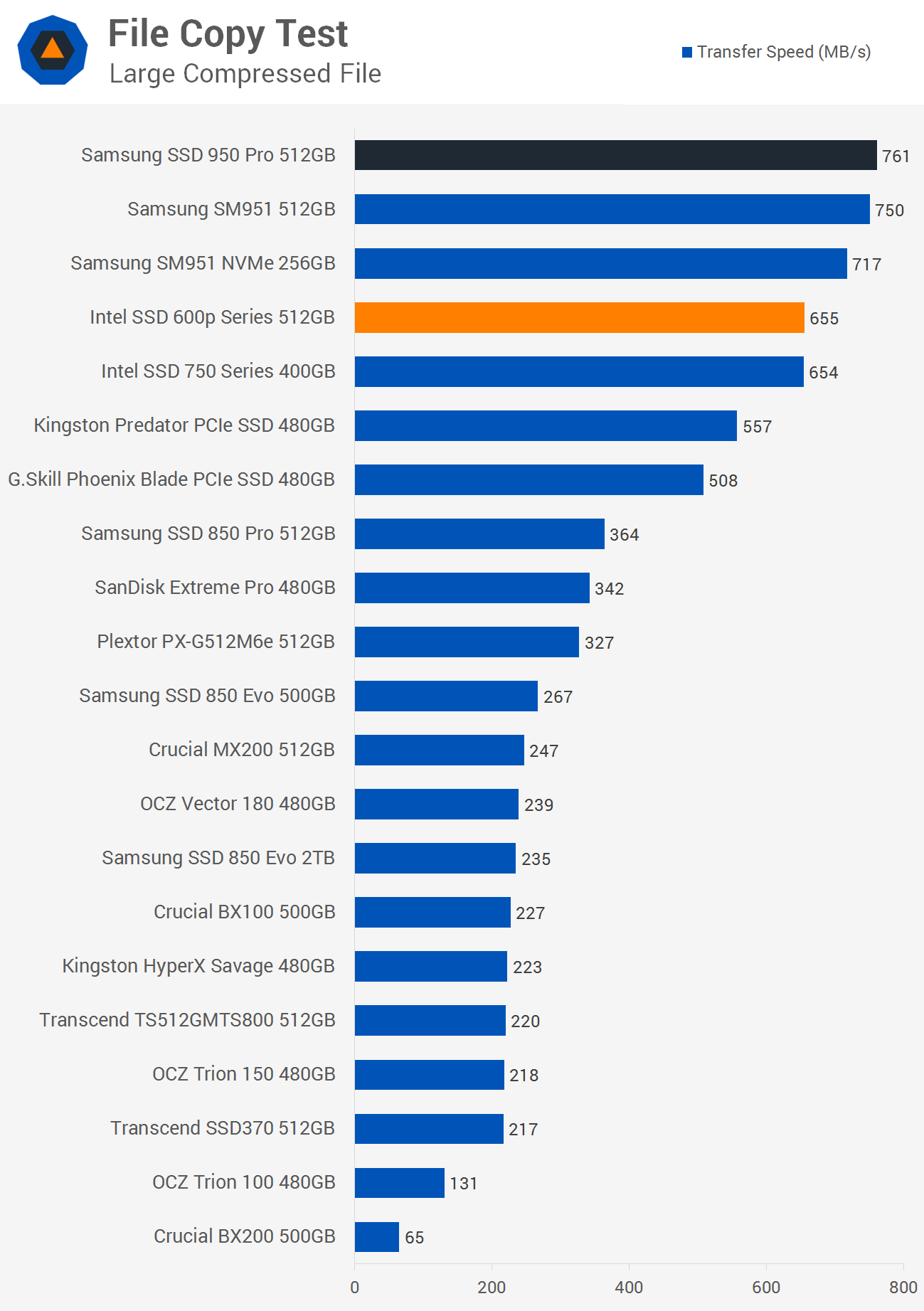
Impressively, the Intel 600p matched the more expensive 400GB 750 in our large 6GB compressed file test. This places it well ahead of the fastest SATA SSDs and not far behind the mighty Samsung 950 Pro.
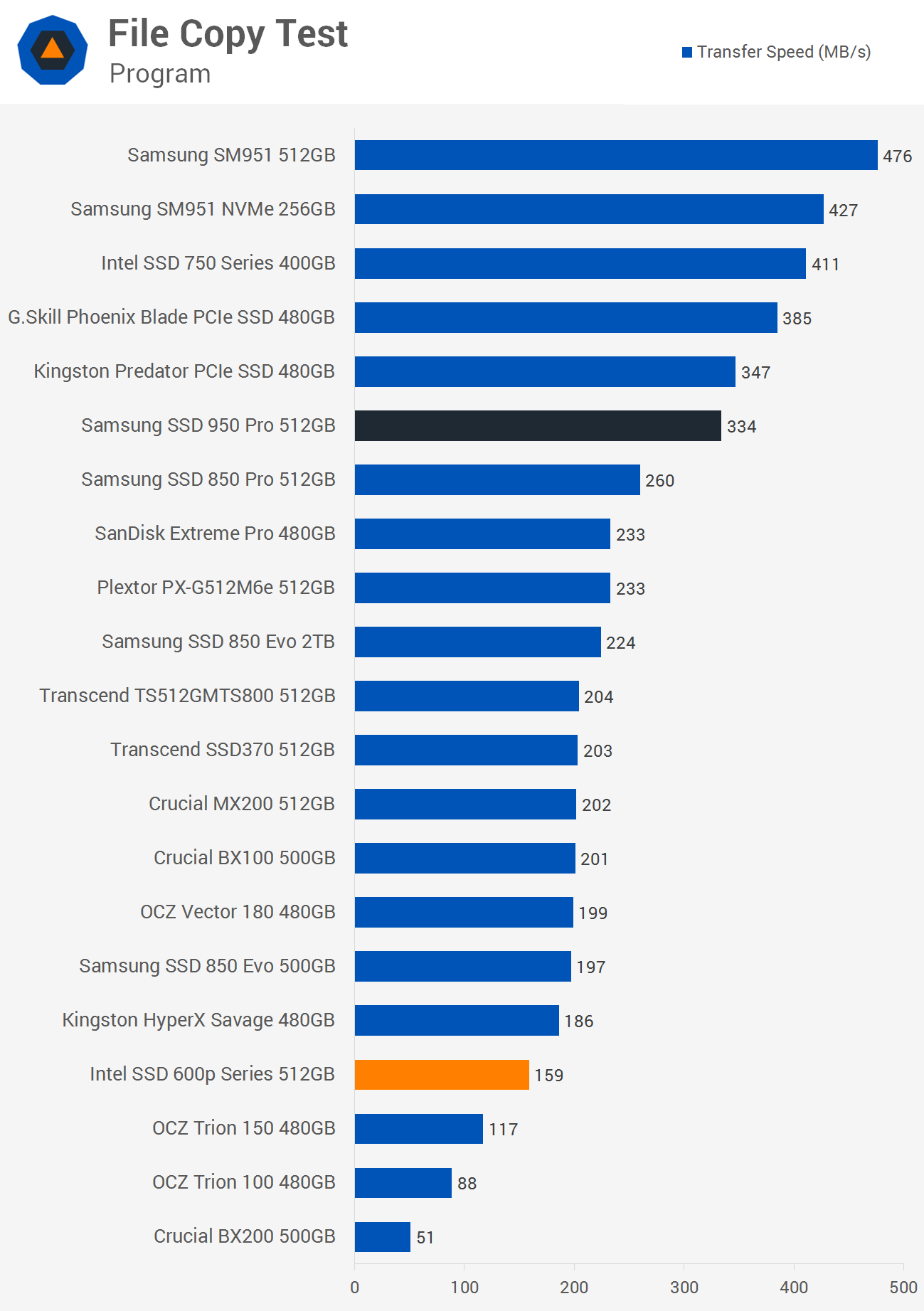
The program copy test is comprised of many small non-compressed files ranging from just 1K up to 5000K in size (6104 files totalling 2.75GB). The performance here is very unexpected as the 600p is nowhere to be seen. The throughput dropped to just 159MB/s making the Intel 600p one of the lowest SSDs we have tested in recent times.
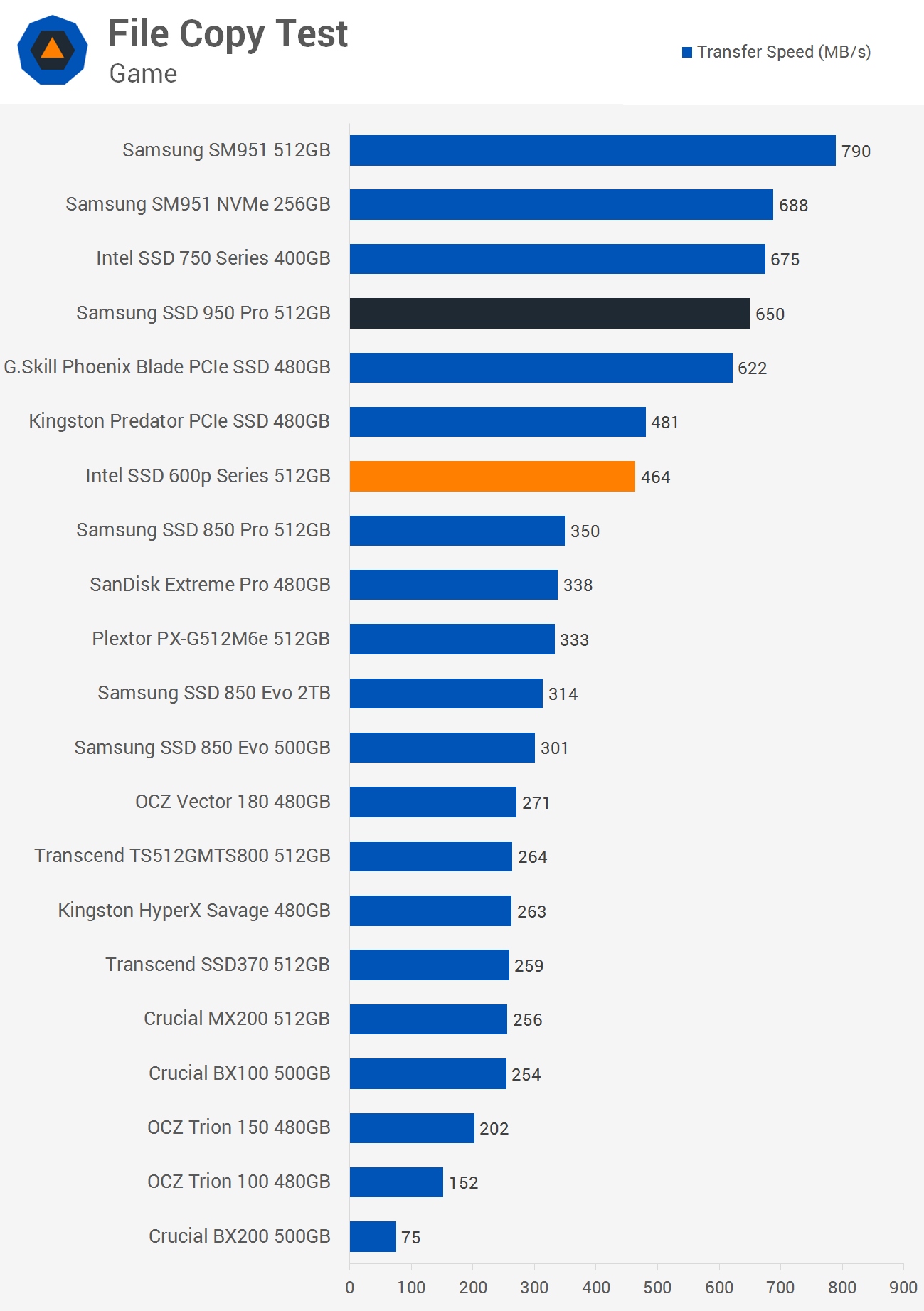
Our last file copy test uses game data in a mixture of small and large, compressed and non-compressed files. The Intel 600p returns to form in our game copy test with a throughput of 464MB/s, placing it roughly on par with the Kingston Predator. The performance here isn't mind blowing but it's acceptable given the price tag.
